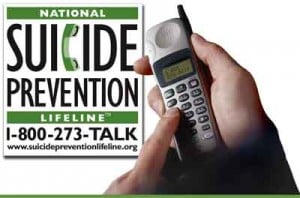How you treat the depressed person can either help or hinder recovery. Here are three tips on how you can help someone who is depressed.
1. TALK.
Talk is very important for anyone who is depressed. Talking helps the depressed person express emotions and ideas. It’s a lifeline to the world.
There is a need in the depressed person to talk about his/her experience. That talk might not make sense to you or it may even alarm you. However, that’s how depression makes the person feel and view the world. Depression isolates and makes people vulnerable. By talking, a depressed person is able to connect with someone outside of the darkness and cling to hope.
Talk can also help someone realize that he/she is depressed. Grief, for example, can lead a person into depression. By bringing up the subject of depression, you might help your friend realize that what he/she is feeling is more than grief.
“Do you want to talk? Do you feel like talking?” are good ways to start a conversation. “How can I help you? I’m here if you want to talk. I love you. Look forward, past your pain, and see it won’t always be this way.”
2. LISTENING IN A NON JUDGMENTAL WAY.
Accept the person’s thoughts and feelings without judging the person. Those thoughts and feelings are influenced by depression. They do not define who your loved one is! What your loved one needs most now is Compassion and Understanding.
Forget the drama! It’s easy to quickly get swept into arguments when you try to change the depressed person’s thinking. Depression is an illness, a darkness of anguish and despair tightening around the soul. Thoughts become erratic but it doesn’t mean the depressed person is stupid or doesn’t understand what’s going on. It’s not about you so don’t let your ego get in the way.
Don’t say you know what the person is going through. It will only irritate your loved one because as we all know, depression is a uniquely personalized experience. Even if you have been or are depressed and feel empathy, openly acknowledge to your loved one that his/her experience is different from your own.
3. DON’T PROMISE TO KEEP IT A SECRET.
Depression should never be kept secret. There are many reasons a depressed person will want you to promise to keep it a secret. For some it’s about societal or cultural shame. For others it’s reactions at the workplace, club or organization. There’s shame by association which can cause families to withdraw needed support. Finally, there is the person considering suicide.
Tell someone your concerns. Preferably you should tell a trained medical professional who can advise and assist in the matter. You can also contact the national mental health hotline or local mental health organizations.
You aren’t betraying the person. You might feel guilty or loose the trust or friendship of the person, but you did the right thing.
Need help? In the U.S., call 1-800-273-8255 for the National Suicide Prevention Lifeline. (http://www.suicidepreventionlifeline.org)




